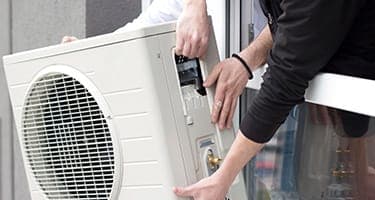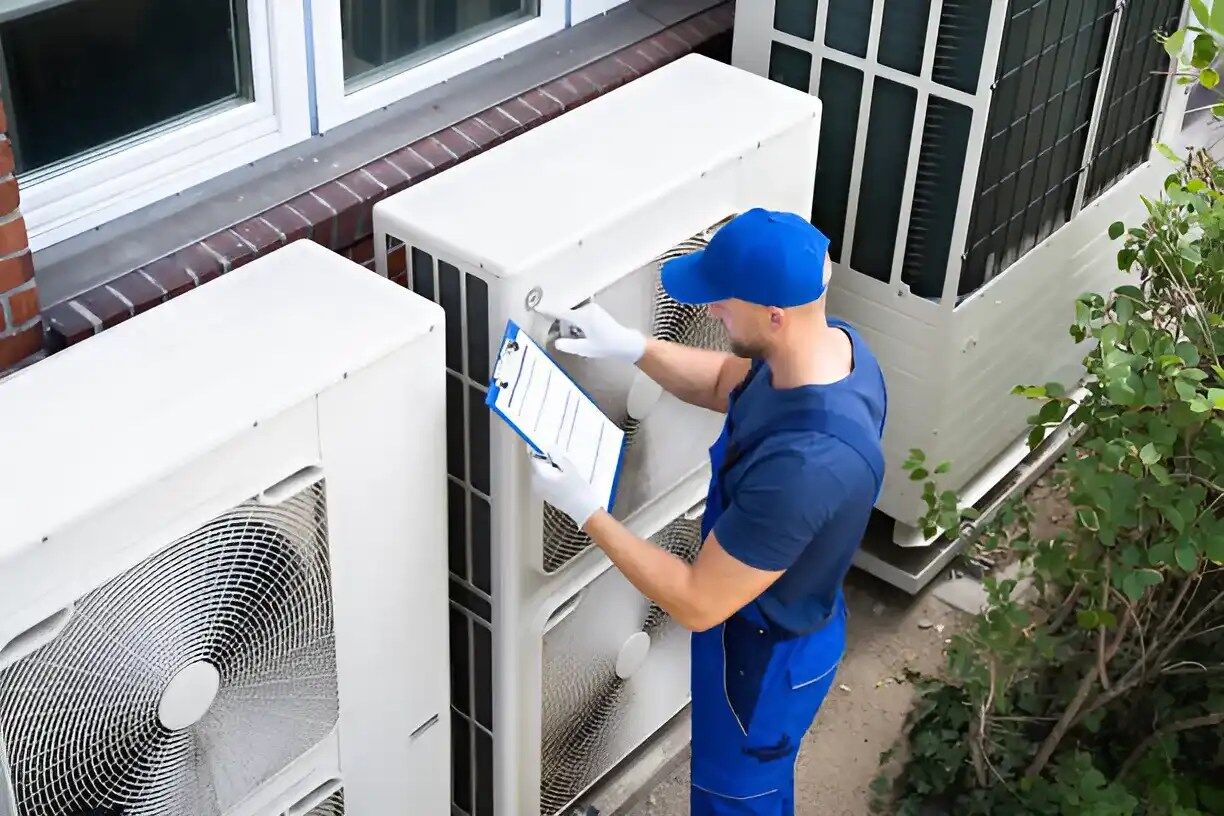Some Ideas on Ac Air Conditioner Repair You Need To Know
All about Air Conditioner Repair Near Me
AC Air Conditioner Repair: Professional Cooling System Repair Guarantees Your Home Stays Comfy Throughout The Year
Types of Air Conditioner Systems
When taking on air conditioner repair, comprehending the type of air conditioning system you're handling can conserve time, money, and irritation. Ever questioned why some systems cool a room much faster than others? Or why certain systems appear to break down more regularly? Let's peel back the layers.
Central Air
Some Known Factual Statements About Fix Air Conditioner
Imagine a cool breeze flowing through an entire house, whispering comfort into every corner. Central air conditioning systems do precisely that. They use a network of ducts to disperse cooled air, relying on a compressor and condenser outside, coupled with an evaporator coil inside. When this complex beast falters, determining the concern can be like discovering a needle in a haystack.
Split Systems

Split systems are a popular choice for lots of homes-- part indoor unit, part outdoor compressor. They provide flexibility and performance, however their double nature implies repair work can involve either component. Have you ever heard a weird sound outside your home only to find the indoor unit isn't cooling? That's a traditional sign of a split system glitch.
Our Air Conditioner Repair Near Me PDFs
Window Units
These read more compact warriors battle summertime heat by fitting snugly into a window frame. They combine all components into a single box. Their simplicity frequently means fewer repair work headaches, but disregarding filters or permitting debris buildup can lead to diminished efficiency or breakdowns.
Ductless Mini-Splits
The Facts About Fix Air Conditioner Uncovered
Ductless systems bypass ductwork entirely, making them perfect for homes without existing ventilation. They're peaceful, effective, and remarkably durable. When repairs are needed, professionals should be skilled at dealing with refrigerant lines and electrical connections-- no little task.
Quick Recommendation Table
| Type | Key Features | Typical Repair Issues |
|---|---|---|
| Central Air | Ductwork, whole-house cooling | Duct leaks, compressor failure |
| Split System | Indoor & & outdoor systems | Refrigerant leaks, fan motor problems |
| Window Unit | All-in-one, simple installation | Unclean filters, electrical faults |
| Ductless Mini-Split | No ducts, zoned cooling | Line leakages, sensor malfunctions |
Ac Fixing Fundamentals Explained
Deciphering the Most Frequent AC Issues
Have you ever questioned why your air conditioning system suddenly stops cooling during a sweltering afternoon? One common culprit is an unclean or stopped up air filter. This sneaky villain restricts air flow, forcing your system to work overtime, which not just decreases performance but can also result in premature breakdowns. Picture attempting to breathe through a headscarf soaked in dust-- it's tiring!
Another frequent hiccup is refrigerant leaks. These invisible leakages don't simply decrease cooling power but can likewise damage the compressor, the heart of your a/c unit. How frequently do you look for uncommon hissing noises or ice formation on the coils? Capturing these indications early can conserve you from costly repairs down the line.
Beyond the Basics: Lesser-Known Issues
The Ac Fixing PDFs
Often, the thermostat itself is the nuisance. Miscalibrated or defective thermostats send mixed signals, causing the air conditioning to cycle erratically. Ever skilled your air conditioner switching on and off in rapid succession? That's called short biking, a sly effectiveness drainer that can break parts much faster than you 'd expect.
Electrical issues, such as used wiring or a malfunctioning capacitor, may hide underneath the surface. Fix Air Conditioner. These often manifest as air conditioner units stopping working to begin or unexpectedly closing down. A professional eye knows to test these parts with accuracy tools, something a casual look will not expose
Professional Tips for Diagnosing Common A/c Concerns
3 Easy Facts About Ac Repair Near Me Described
- Examine and replace air filters regularly-- every 1 to 3 months depending on usage and environment.
- Listen for uncommon sounds like rattling or buzzing that might indicate loose parts or electrical faults.
- Check the outdoor system for debris or clogs that restrain airflow and trigger overheating.
- Look for frost buildup on evaporator coils, a hint towards refrigerant issues or air flow constraints.
- Evaluate the thermostat settings and recalibrate if the temperature readings feel off.
Quick Reference Table: Manifestation & & Probable Causes

| Symptom | Probable Cause | Specialist Tip |
|---|---|---|
| Warm air blowing | Low refrigerant or dirty coils | Clean coils and inspect for leakages immediately |
| Brief biking | Thermostat issues or large unit | Change thermostat settings and consult sizing guidelines |
| System won't begin | Electrical faults or capacitor failure | Test circuitry and change capacitors as required |
| Water leak | Clogged drain line or frozen evaporator | Clear drain lines and examine for coil icing |
DO IT YOURSELF A/c Maintenance Tips
Ac Fixing Can Be Fun For Everyone
Ever discovered your air conditioning unit sputtering like an old engine on a hot summer day? Neglecting subtle signs frequently means more than simply a sweaty afternoon-- it's a prelude to unexpected air conditioning repair work expenses. What if you could catch those whispers before they turn into wails? Regular DIY upkeep can be your first line of defense.
Simple Actions to Keep Your Air Conditioning Running Efficiently
Excitement About Ac Repair
- Clean or Replace Filters: A stopped up filter resembles attempting to breathe through a headscarf. Every 1-3 months, examine and swap out your filters. It improves airflow and performance, avoiding compressor stress.
- Examine the Condenser Coils: Dust and debris serve as unnoticeable blankets smothering your unit's cooling power. Gently brush or vacuum the coils, but prevent harsh chemicals that may deteriorate the metal.
- Inspect the Drain Line: When was the last time you glimpsed at your drain pan? A stopped up drain can trigger water leakages and foster mold growth. Flushing it with a vinegar solution month-to-month keeps the circulation clear.
- Seal and Insulate: Are your ductworks whispering leakages? Sealing spaces with mastic or foil tape boosts efficiency and minimize unequal cooling.
Pro Tips Beyond the Basics
- Step your unit's voltage to catch subtle electrical wear before it sparks huge issues.
- Listen for unusual hums or rattles-- these acoustic breadcrumbs often signify loose parts or failing motors.
- Keep outdoor units shaded however guarantee a minimum of 2 feet of clearance around them for ideal airflow.
Ask yourself: Are you hearing your air conditioning's quiet SOS or just awaiting it to shout? Requiring time for DIY a/c maintenance transforms reactive repair work into proactive care, conserving sweat, tension, and yes, money.
An Unbiased View of Air Conditioning Repair
Why Expertise in Air Conditioner Repair Matters
Envision this: your air conditioner unit sputters and groans during a scorching afternoon, leaving you sweltering inside. Would you rely on a newbie fumbling with delicate elements, or would you seek the peace of mind of a expert a/c technician!.?.!? The intricacies of contemporary a/c systems demand precision and experience. A minor miscalculation can escalate a minor malfunction into a costly catastrophe.
Fix Air Conditioner Fundamentals Explained
Hidden Intricacies Behind the Cool Breeze
Lots of underestimate the layers concealed underneath the sleek exterior of an air conditioning unit - AC Air Conditioner Repair. From refrigerant leaks that quietly drain pipes effectiveness to faulty thermostats that misread temperature levels, these issues need more than a standard toolkit. Experts have a keen eye for diagnosing problems that balance house owners overlook
Important Tips for Choosing the Right Specialist
Ac Repair - The Facts
- Certification and Training: Confirm credentials; a technician trained in the most current HVAC innovations is important.
- Experience with Specific Systems: Not all air conditioning systems are created equal; find somebody familiar with your model's peculiarities.
- Diagnostic Technique: Skilled service technicians use sophisticated tools-- like electronic leakage detectors and thermal imaging-- to pinpoint surprise faults.
What to Anticipate from a Pro's Diagnostic Process
| Action | Function | Specialist Insight |
|---|---|---|
| Visual Evaluation | Recognize obvious wear or damage | Try to find rust or uncommon noises-- an indicator frequently disregarded |
| Pressure Testing | Discover refrigerant leakages | Subtle pressure drops can hint at micro leaks unnoticeable to the naked eye |
| Electrical Testing | Guarantee circuit integrity | Loose connections can simulate serious mechanical failures |
The 10-Minute Rule for Ac Air Conditioner Repair
Why Do It Yourself Typically Falls Short
Appealing as it is to tinker with your AC unit, DIY repairs frequently miss out on the origin. For circumstances, topping off refrigerant may temporarily cool your space but disregards leakages that intensify gradually. Professional professionals do not simply patch symptoms; they hunt down the underlying mechanical and electrical faults that sap efficiency.
Some Known Details About Air Conditioner Repair Near Me
Concerns to Ask Before Working with
- What diagnostic tools do you use to recognize issues?
- Can you explain the repair procedure and expected results?
- Are you familiar with the refrigerants suitable with my unit?
- Do you follow security procedures for dealing with electrical components?